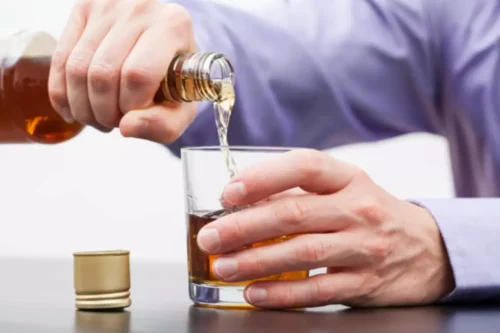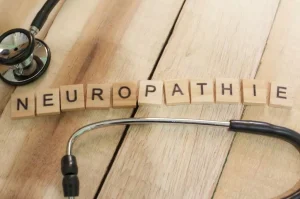Recovery National Institute on Drug Abuse NIDA

Ultimately, choosing to get treatment may be more important than the approach used as long as the approach avoids heavy confrontation and incorporates empathy, motivational support, and a focus on changing drinking behavior. The good news is that no matter how severe the problem may seem, most people with AUD can benefit from some form of treatment. Many others substantially reduce their drinking and report fewer alcohol-related problems. The purpose of the Hispanic/Latino Behavioral Health CoE is to advance the behavioral health equity of Hispanic/Latino communities. Recognizing the transformative power of creative arts in advancing recovery, in May 2024, the Office of Recovery launched the Art of Recovery, inviting visual art submissions from individuals with lived experience and their families.
Opioid Settlement Funding Initiatives
These guidelines help evaluate a patient’s clinical needs and situation to match them with the right level of care, in the most appropriate available setting. For more information on evidence-based guidelines visit Addiction Medicine Primer. Different types of medications may be useful at different stages of treatment to help a patient stop abusing drugs, stay in treatment, and avoid relapse.
Health & Wellness
Blaming, accusing, causing guilt, threatening, or arguing isn’t helpful. You may also want to consider if anyone in the list of friends and family should not be included. Examples are if a person is dealing with their own addiction and may not be able to maintain sobriety, is overly self-motivated or self-involved, or has a strained relationship with the person the intervention is for.

Center for Substance Abuse Treatment (CSAT)
Travis Rasco in Upstate New York says he’s grateful he got enough time, enough chances and enough help to rebuild his life. Eddie said their research suggests more needs to be done to keep people alive while the healing process works. “They fought to only keep me in [rehab] for 14 days; they didn’t want to pay for 30, and I knew that wasn’t enough for me,” Rasco recalled.

Translation Services
- Remember that your loved one is ultimately responsible for managing their own illness.
- Upcoming events happening statewide include virtual naloxone trainings to recognize and respond to an opioid overdose.
- Although relapse is all too common for people challenged with addiction it has not been part of my experience in 17+ years, and while I have occasionally made mention of my personal recovery in previous writings for Psychology Today, this is the first post devoted to it.
- For mental health, of the 58.7 million adults who perceived they ever had a mental health problem, 66.5% (or 38.8 million) considered themselves to be in recovery or to have recovered from their mental health problem.
The alcohol and drug addiction recovery process can look different for each person and is based on the level of care determined for a person, so treatment is often tailored to the individual.4 Program lengths vary. You may choose a 28- or 30-day, 60-day or 90-day inpatient drug rehab stay or an outpatient rehab program, and you might like to opt for specialized treatment options. Several studies have examined the impact of providing incentives either for attendance at continuing care or for drug abstinence during continuing care.
Online Support Group Options
Once was after Haley shot up heroin in the passenger’s side of the car she was in. Her child was in the backseat when she overdosed, the leftover drugs hidden in her underwear. Different difficult experiences in her early life fueled her desire to shut off her mind, just let everything feel okay – temporarily. “I went to a neurologist, and he prescribed me methadone,” Haley explained of trying to ease her back pain. “When I got the prescription, I simmered down on the drinking a little bit.
Researchers find that taking incremental steps to change behavior often motivates people to eventually choose abstinence. Nevertheless, many treatment programs, including Alcoholics Anonymous, require a commitment to complete abstinence as a condition of admission. Taking action is a very important step in the substance abuse recovery process, and it is one in which it’s important to have support as you make changes.
- Other research pinpoints the values of cognitive behavioral therapy for relapse prevention, as it helps people change negative thinking patterns and develop good coping skills.
- Recovery from AUD is marked by stages of abstinence, withdrawal, repair, and growth.
- Relapse rates for drug use are similar to rates for other chronic medical illnesses.
- They’re often dealing with multiple losses at once or have other issues to manage at the same time as their grief.
- Individuals must take many difficult steps to transition into a life of sobriety.
TMC plus incentives, on the other hand, was less cost-effective than TAU and was slightly less effective and more costly than TMC alone. Loved ones who are concerned about a person’s drug or alcohol use may consider an intervention. Ongoing support and follow-up care are important in the recovery process to prevent relapse. Counseling can help members with SUD explore the reasons behind their drug or alcohol use and come up with new, healthy coping strategies. It can be especially effective for members who also have a mental health condition, or who started using to deal with distressing emotions, trauma, or excessive stress.
In fact, there are many treatment options available thanks to significant advances in medical and behavioral research over the past decades. SAMHSA’s mission is to lead public health and service delivery efforts that promote mental health, prevent substance misuse, and provide treatments and supports to foster recovery while ensuring equitable access and better outcomes. successful drug addicts There is hard data showing that the changes to the brain’s neurotransmitters and neural circuits that turn repeated substance use into addiction can be reversed after cessation of drug use, even in the case of addiction to methamphetamine. That is because the brain is plastic and changes in response to experience—the capacity that underlies all learning.
Suicide & Crisis Lifeline

It should be noted that three of these studies also were included in the review by Blodgett et al.8 In summary, prior reviews of continuing care for adolescents with SUD generally found favorable results, particularly for ACC. The primary outcome was a composite measure that considered cocaine use, other drug use, and heavy alcohol use. However, among participants who continued to use cocaine or drink alcohol in the first 3 weeks of IOP, TMC had significant positive effects on the primary outcome compared with TAU with IOP. Although the incentives almost doubled the number of continuing care sessions that were attended, substance use outcomes in the TMC plus incentives condition were slightly worse than those in TMC.
